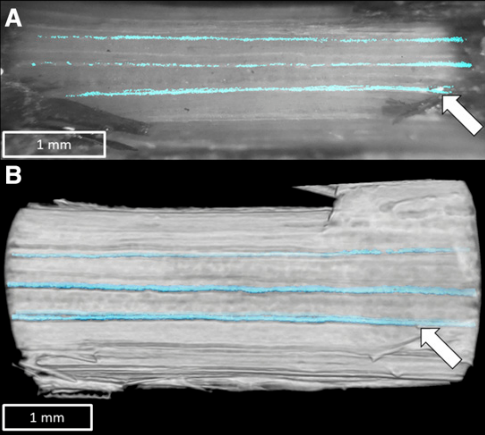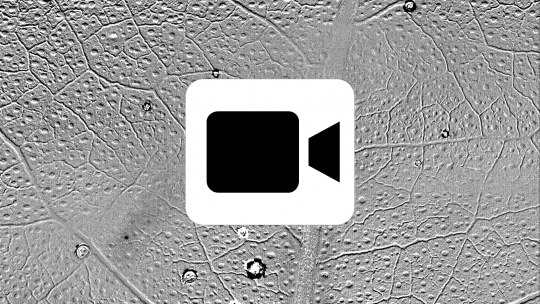Xylem cavitation resulting in air embolism is a major cause of plant death during drought, yet the spread of embolism throughout the plant water transport system is poorly understood. Our study used optical visualization and X-ray microcomputed tomography imaging to capture the spread of emboli in stems of three drought-resistant angiosperm trees: Drooping she-oak (Allocasuarina verticillata), black wattle (Acacia mearnsii), and blue gum (Eucalyptus globulus). These species have similar degrees of xylem network connectivity (vessel grouping) with largely solitary vessels. The high temporal resolution of the optical vulnerability technique revealed that in current year branches, .80% of the cavitation events were discrete, temporally separated events in single vessels. This suggests that in xylem networks with low connectivity, embolism spread between conduits leading to multiple conduit cavitation events is uncommon. A. mearnsii showed both the highest number of multivessel cavitation events and the highest degree of vessel connectivity, suggesting a link between vessel arrangement and embolism spread. Knowledge of embolism spread will help us to uncover the links between xylem anatomy, arrangement, and the path of water flow in the xylem in diverse species to ultimately understand the drivers of cavitation and plant vulnerability to drought.

Xylem Embolism Spreads by Single-Conduit Events in Three Dry Forest Angiosperm Stems
Download Article
Johnson, K. M., Brodersen, C., Carins-Murphy, M. R., Choat, B., & Brodribb, T. J. (2020). Xylem Embolism Spreads by Single-Conduit Events in Three Dry Forest Angiosperm Stems1[OPEN]. Plant Physiology, 184(1), 212–222. https://doi.org/10.1104/PP.20.00464

